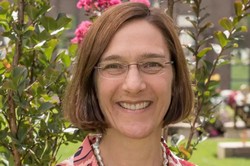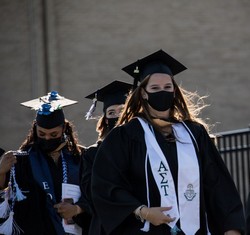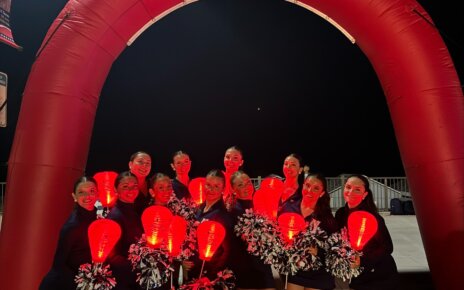Kristen Bluemel, Ph.D., a Professor of English, was recently awarded the Leverhulme Visiting Professorship at Newcastle University, where she will undertake projects focused on the impact that 18th century wood engraver Thomas Bewick had on British book printing.
Her proposed projects will transcend disciplinary bounds, culminating in the emerging field of rural humanities. “I have for the last few years been at the forefront of defining rural modernity for literary scholars, and I hope now to extend those ideas to Newcastle University scholars working in various rural institutes devoted to rural economic, business, music and art studies,” she explained.
To this effect, Bluemel will undertake several public initiatives. She will work to initiate youth programs with the curators at Bewick’s Homestead in the Tyne Valley, Cherryburn, run by the National Trust, and restore their printing program for adult patrons. She will also deliver a series of lectures at Newcastle University and local museums, as well as facilitate internship and research opportunities for Newcastle graduate students in the Bewick archives of the Natural History Society of Northumbria at the Great North Museum.
Bluemel is the Wayne D. McMurray Endowed Chair in the Humanities. Rich Veit, Interim Dean of the School of Humanities and Social Sciences, said of Bluemel, “She is one our star faculty members and a renowned teacher and scholar.” The position she won as a Leverhulme Visiting Professor is a “distinct honor and speaks to her considerable talent as a scholar,” he added.
The English Honors Society Sigma Tau Delta wrote in a statement to The Outlook, “We would like to congratulate Dr. Bluemel on winning the visiting professorship… She is truly deserving of this opportunity. We know her exceptional teaching abilities will be appreciated by her future students.”
Bluemel will coordinate a graduate student-led conference on modern children’s literature, editing a journal issue of the conference papers the following year, and lead graduate workshops on children’s literature and rural modernity.
Veit concluded, “Her research will also help her move her book An Ideal Modernity: Rural Britain, Women Artists, and the Twentieth-Century Wood Engraving Revival towards completion. We are very proud that Professor Bluemel has received this honor.”
Bluemel’s book explores 20th century women wood engravers during the new British nature writing movement. These engravers led Bluemel to discover Bewick, who inspired their work through his contributions to print culture.
Bewick, Bluemel explained, is regarded as Northumbria’s greatest artist for his transformation of illustration and book printing. He was a silver engraver’s apprentice at 14-years-old but began experimenting with his engraving tools on wood blocks. The carved illustrations were inked and printed in math textbooks. “This proves that a powerful imagination can transform even the driest of artistic projects. He invented a new way of creating detailed pictures for books that made possible cheap quality reproduction of beautiful images,” she said.
“You have to keep in mind England is very small and very old and that London dominates all cultural life. For someone like Bewick, a working-class artisan from the north, to make an impact on people in the south, in London, and then on all the print culture of Europe and America, is astonishing,” Bluemel added.
Bluemel hopes to change the way English academics at Newcastle think about rural Britain by introducing her work on British rural literature to existing work. She hopes children’s culture becomes part of the discourse through her work with graduate students, as well as connect contemporary rural humanities to more historical studies by encouraging students to use the Bewick archives surrounding them.
“I never could have won this Leverhulme Visiting Professorship without Monmouth’s energetic support,” Bluemel said. “The University supported my years of scholarship on seemingly obscure British literary figures and artistic movements, trusting this work was all somehow important and meaningful.”
“I’d like to add that in the future I hope to be a resource for any Monmouth students hoping to study abroad in England. Maybe I’ll be able to set up partnerships at Newcastle that would lead Monmouth students to study in Northumbria, simultaneously one of the most romantic and industrial areas of England,” Bluemel concluded.
PHOTO COURTESY of Monmouth University




